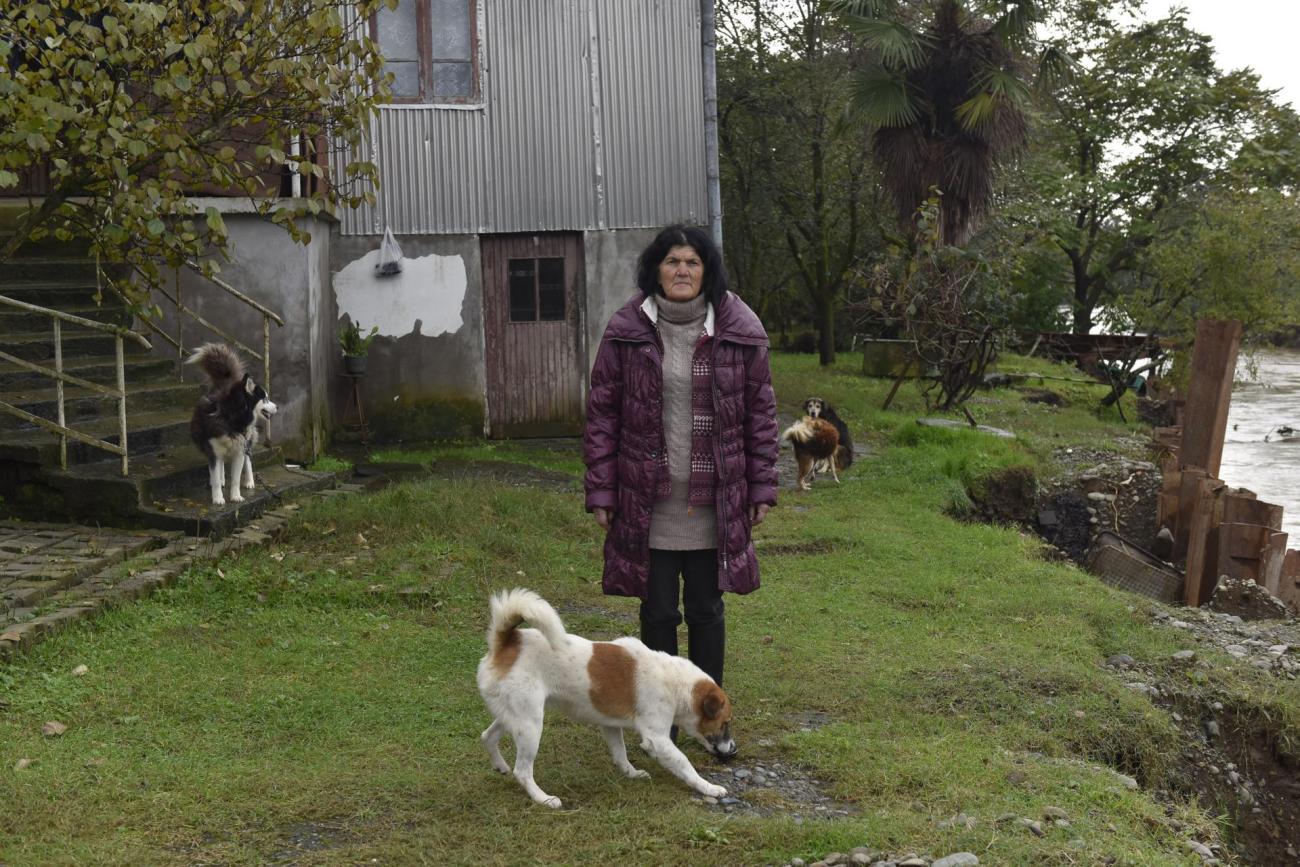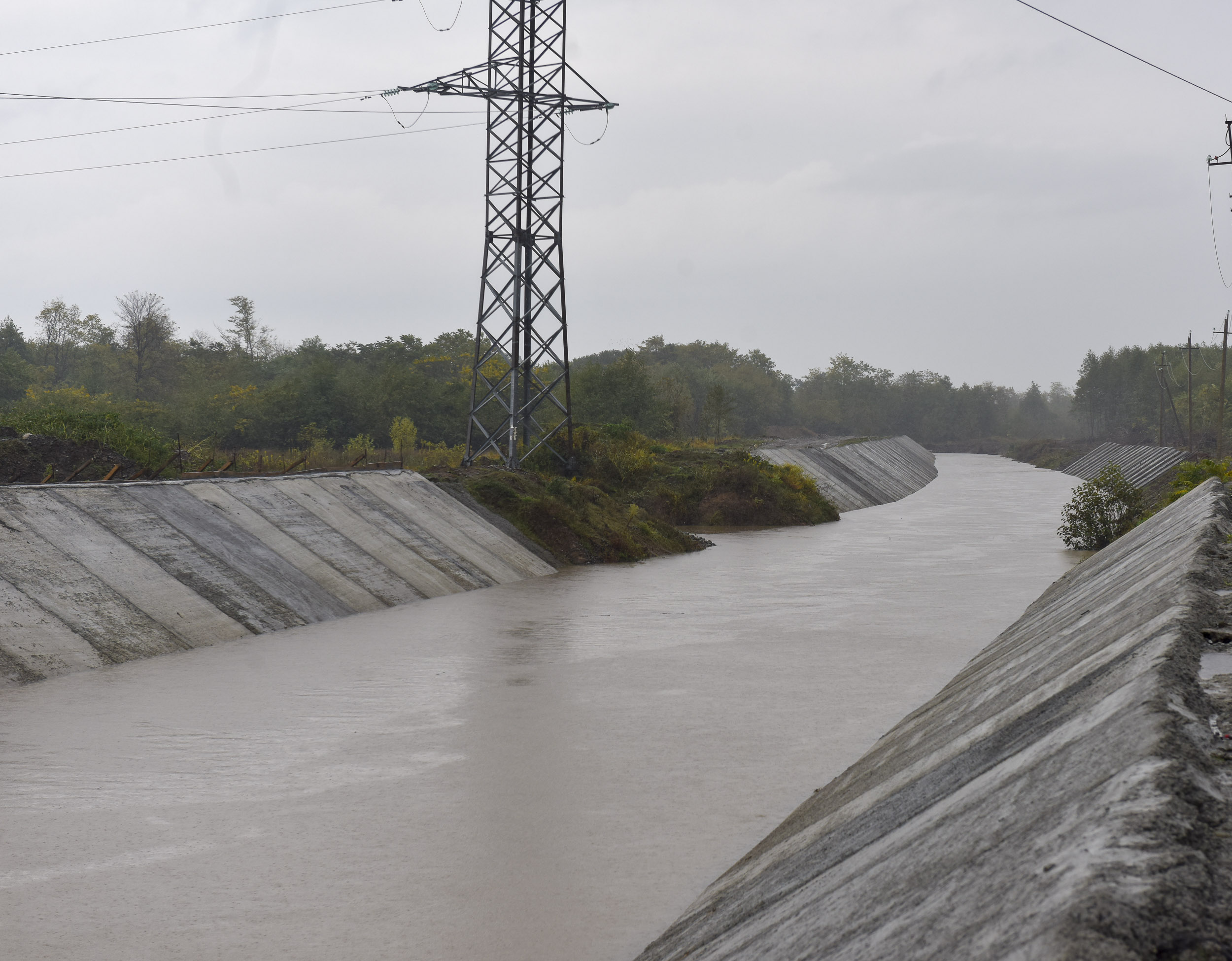Climate change frontliners

UNDP assists women in Georgia to cope with the adverse effects of climate change
“The river is washing off the foundation of my house,” says Natela Margvelani from Kobuleti Municipality in western Georgia.
Her lovely house on the Achkva riverbank was once home to a large and friendly family, but the increasing threat of floods drove Natela’s children and grandchildren to safer locations away from the river. Natela never stayed alone, though. Her hospitable home gave shelter to seven dogs and four cats whose owners moved away because of floods and left their pets behind. Cats and dogs have no fear of climate change and live happily under Natela’s loving care.
Natela says that the local climate has changed significantly over the years, affecting her home and nearby villages. "It did not rain that much at this time of the year. The weather is getting worse year after year. People are leaving and even animals are losing their homes," she notes.
The most recent flood hit Natela’s village in September 2022. The water damaged houses and agriculture plots and threatened the electricity transmission infrastructure.

A flood protection channel
Photo: UNDP Georgia/Gela Bedianashvili
Local solutions to a global challenge
Climate-induced disasters, such as floods, landslides, mudflows, windstorms, hailstorms, droughts and avalanches, are affecting all regions of Georgia. Over the past two decades, these extreme events took more than 152 lives and economic losses amounted to US$1.2 billion.
So far, flooding has been among the most frequent hydrometeorological hazards in Georgia caused by water overflow because of torrent rains or melting glaciers. Kobuleti Municipality is one of the flood risk areas where 8,000 people live under the constant threat that their homes, gardens and pastures will be washed away.
To counter this threat, UNDP helps rehabilitate a 1,929-meter artificial channel between Achkva and Kintrishi rivers and build a new spillway and a gabion wall. The infrastructure will divert a river flow during floods to protect surrounding settlements and agriculture plots. Its construction will be completed by the end of 2023.
It may not be possible to erase the risk of floods and other climate-induced disasters. However, climate-smart investments can help us build a society where people and their property are better protected from the devastating effects of climate change.
How UNDP can help
UNDP’s assistance to Natela Margvelani and many other people in Georgia affected by climate change draws on the US$74 million programme supported by the Green Climate Fund and the governments of Georgia, Sweden and Switzerland. The seven-year initiative covers almost all disaster risk zones in Georgia’s 11 biggest river basins, assisting to protect 1.7 million people, over 40 percent of the country’s population, from hydrometeorological hazards.
Along with building protective infrastructure, UNDP assists Georgia to transform its national approach to disaster management from reaction to adaptation and prevention. This work includes:
- Developing a fully integrated multi-hazard early warning system that will cover Georgia’s entire territory to ensure that people at risk are alerted in time and know what action to take.
- Introducing standardized hazard, risk and vulnerability assessment, mapping methods and technologies.
- Upgrading hydrometeorological observation networks to monitor weather conditions and understand them in real-time.
- Providing critical climate risk information and enabling the implementation of nationwide risk reduction policies.
- Developing long-term institutional and community capacities in climate risk reduction, climate change adaptation and multi-hazard early warning.
- Integrating gender equality and social inclusion in all activities associated with climate hazards to ensure that vulnerable groups are protected.
Back in Kobuleti, Natela Margvelani watches the flood protection works with a growing sense of hope. She looks forward to having her large and friendly family back home.

